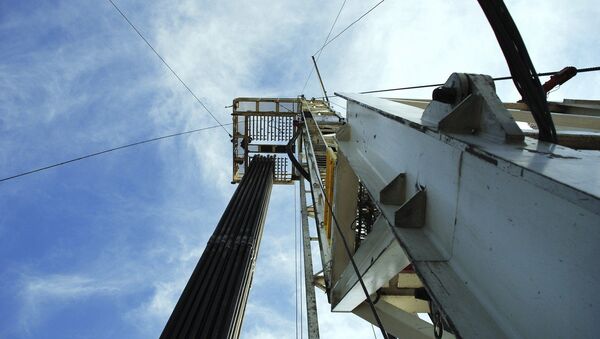Located about an hour north of Dallas, the city of Denton is where the practice of hydrolytic fracturing was first perfected. Yet in early November the city's residents passed by a six-to-four margin a ban on fracking within the city's limits. Within hours the Texas Oil & Gas Association and the Texas General Land Office sued the city.
"The issue on a fracking ban is legally untested in Texas. There is no case law on this," Terrence Welch, a lawyer who has helped cities in Texas draft ordinances, told Sputnik.
Welch explained that what the industry and lawsuits argue was that a Texas municipality cannot ban fracking because they were preempted under state law. "The state has regulations on fracking and they are saying because the state has regulations cities can't regulate fracking," he said.
"The legislature has to specifically say thou shalt not do something," Welch said. "That's where we are fighting at the moment."
Fred Beach, the Assistant Director for Energy & Technology Policy at the University of Texas's Energy Institute, argued the issue was not necessarily about fracking, but the regulation of industrial activity in residential and suburban areas.
"We see there are ways to access oil and gas in shale formations which previously were never thought being accessible, a lot of these formations sit not only in areas where there hasn't been a history of oil and gas work … but also in actual residential areas," Beach said, noting that oil and gas drilling is occurring literally in people's backyards.
"If I am a homeowner and my neighbor decides he wants to let people have a drilling rig on his land to access oil and gas which he has mineral rights to, I'd have issue with having industrial activity within a few hundred feet of my home – the noise, the light pollution, air pollution, all the things that come with industrial activity in a residential community, that's an issue," he explained.
The legal battle could still fizzle. Republican State Rep. Phil King has introduced two bills to the Texas State Legislature that would limit other cities from following in Denton's footsteps. One bill would require any city to get permission from the Texas Attorney General before holding a vote on a fracking ban. The other bill would hit cities" financing by forcing any municipality that bans fracking to pay the state for the loss in taxes, royalties and fees. The bills could be debated when the legislature opens in January.
Welch says there is no doubt the Texas legislature can get a bill through to prohibit municipal fracking bans.
"They will do everything they can do to get a bill through. But there is a PR component associated with that too. There is a political price," Welch noted. "If the oil and gas industry gets this through, that no city can regulate fracking in anyway shape or form, it is taking away local control. And there will be some sort of backlash on that."
Beach agreed, arguing it is better for local government to regulate drilling in their municipalities rather than have the state enact broad and sweeping laws prohibiting the cities from having any jurisdiction within their borders.



